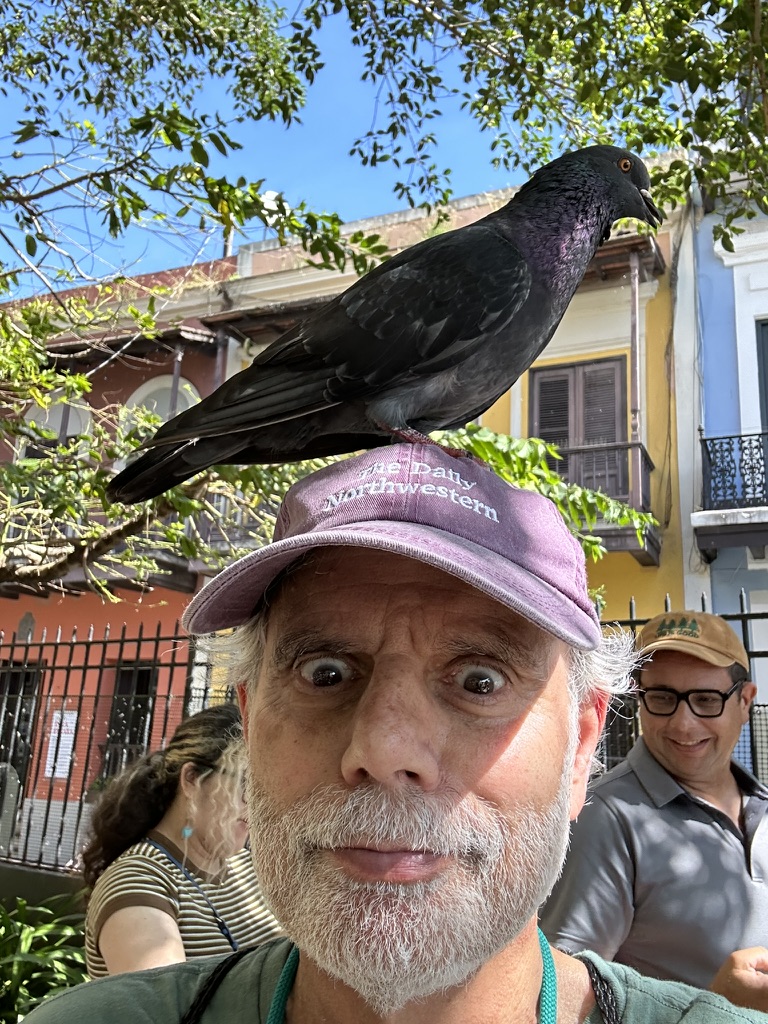Evanston RoundTable, Dec. 13, 2018
In this centenary year of Leonard Bernstein’s birth, we rightly celebrate his genius as a conductor, composer, educator and pianist.
But no less important was Lenny’s enormous impact on people’s lives.
Take the life of Evanstonian Victor Yampolsky, Director of Orchestras and Professor in Music Performance at Northwestern.
Prof. Yampolsky was born in the Soviet republic of Kyrgyzstan in 1942. His father was David Oistrakh’s piano accompanist. Growing up he studied violin with Oistrakh and played with the Moscow Philharmonic from 1965 to 1973. During that time the orchestra traveled to more than 30 countries, twice to America.
With the orchestra’s prestige and perquisites—attractive salaries and benefits—life was good. “I lived in a cocoon,” Prof. Yampolsky said of his early years, shielded from hardship, performing with some of the world’s finest musicians.
But in 1972 Prof. Yampolsky’s younger brother dropped a bombshell: he was applying to emigrate to Israel. That meant he was now deemed a “security risk” by the KGB, so Prof. Yampolsky was forced to leave the orchestra.
With no job and no prospects, life in Russia became intolerable. “I was living from hour to hour. I felt totally suspended in the air,” Prof. Yampolsky recalled.
The only remedy was to emigrate himself. He left Russia in April of 1973 for Rome, hoping eventually to get to America. There were numerous obstacles, but the American embassy held out hope. If Prof. Yampolsky and his fellow émigré, Michael Zaretsky, a violist from the Moscow Radio Symphony Orchestra, could get recommendations from a well-known conductor, they might be allowed to go to America. Zubin Mehta wrote such a letter, but it wasn’t considered strong enough.
That’s when Prof. Yampolsky and Mr. Zaretsky learned Bernstein was going to be in Rome. A mutual friend arranged an introduction as the maestro was leaving a rehearsal.
“I met him in the corridor backstage and literally blocked his way. I said to him, ‘Mr. Bernstein, we are Russian refugees who want to go to America,’” Prof. Yampolsky recalled. “Lenny hugged us. He said, ‘You are Russian Jews. I love you! What can I do for you?’ We told him we had a letter from Maestro Mehta but needed another letter.”
Bernstein arranged for an informal audition three days later. Prof. Yampolsky played selections from a Bach sonata. Bernstein’s reaction was immediate. “Would you like to go to Tanglewood [the Boston Symphony’s summer home]?”
“It was an incredibly dramatic turn of events,” Prof. Yampolsky said. Bernstein spoke with his friend Senator Ted Kennedy and a visa was quickly arranged. Soon Prof. Yampolsky and his family were on their way to Massachusetts. While playing with the Tanglewood, orchestra, he saw a notice about an opening in the Boston Symphony violin section. He tried out two weeks later and won the position.
Thanks to Leonard Bernstein, he was firmly established in the New World.





+ There are no comments
Add yours